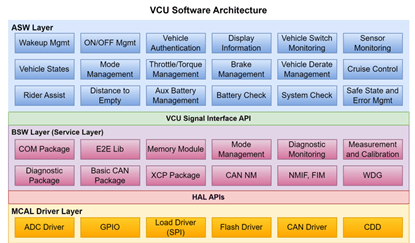About the Customer:
The client is a leading global 2-wheeler OEM seeking to enhance their with a Vehicle Control Unit (VCU). This project required the development of ASIL-B compliant application software using Model-Based Development (MBD) to support their next-generation EV systems. The goal was to ensure safety compliance and high flexibility within their EV control architecture.
Business Challenges:
The client needed to develop a robust and flexible Vehicle Control Unit platform that adhered to stringent safety standards (ASIL-B) while incorporating key features such as diagnostics, communication, and safety management. The challenge was to ensure seamless integration of these features into an AUTOSAR-based platform, while maintaining efficient communication across the system. The solution had to be adaptable to future changes, easy to maintain, and provide extensive support for diagnostics and safety features.
Furthermore, the project had to deliver a safety-compliant system that could meet requirements, and offer reliable communication via CAN protocol, alongside self-diagnostics and fault tolerance.

Embitel’s Solution:
Embitel Technologies took on the task of developing the ASIL-B compliant application software for the VCU, utilizing our expertise in the following:
- AUTOSAR-Based Platform Software: We designed and developed a platform software that integrated low-level driver modules for the NXP S32K3xx microcontroller, including communication stacks (CAN), diagnostics, Hardware Abstraction Layer (HAL), and self-diagnostics.
- Signal Interface Layer: The platform software enabled easy access to Basic Software (BSW) signals for VCU applications via a Signal Interface layer, allowing for greater flexibility in system design and customization.
- Safety & Diagnostics: We implemented a safety library compliant with ASIL-B requirements and integrated diagnostic layers including UDS ISO 14229 and ISOTP. The system ensured comprehensive diagnostic capabilities and adherence to ISO 26262 standards.
- Model-Based Development (MBD): Leveraging MATLAB Simulink, the application was integrated with the platform software to ensure a seamless combination of software modules and
- Development Tools: The development process utilized industry-leading tools such as CANoe, Polyspace, Tessy (for unit testing), and S32 Design Studio for an efficient and compliant solution delivery.
Embitel Impact:
The ASIL-B compliant platform software developed by Embitel has had a significant impact on the client’s EV VCU system:
- Safety Compliance: By adhering to ISO 26262 ASIL-B requirements, the platform ensured a high level of for the vehicle control systems.
- Seamless Integration: The integration of communication and diagnostics layers (including UDS and ) facilitated efficient system communication and troubleshooting, resulting in a more reliable VCU platform.
- Flexibility for Future Adaptation: The modular and flexible platform allowed the client to easily adapt to future changes and system updates without extensive redevelopment.
- Reduced Development Time: Through the use of and , the project was delivered within the desired timelines, ensuring reduced time-to-market for the client’s EV systems.
- Enhanced Diagnostics: The integration of and ISOTP diagnostic protocols empowered the system with comprehensive fault detection and resolution capabilities, improving overall system reliability.



